Premium Only Content
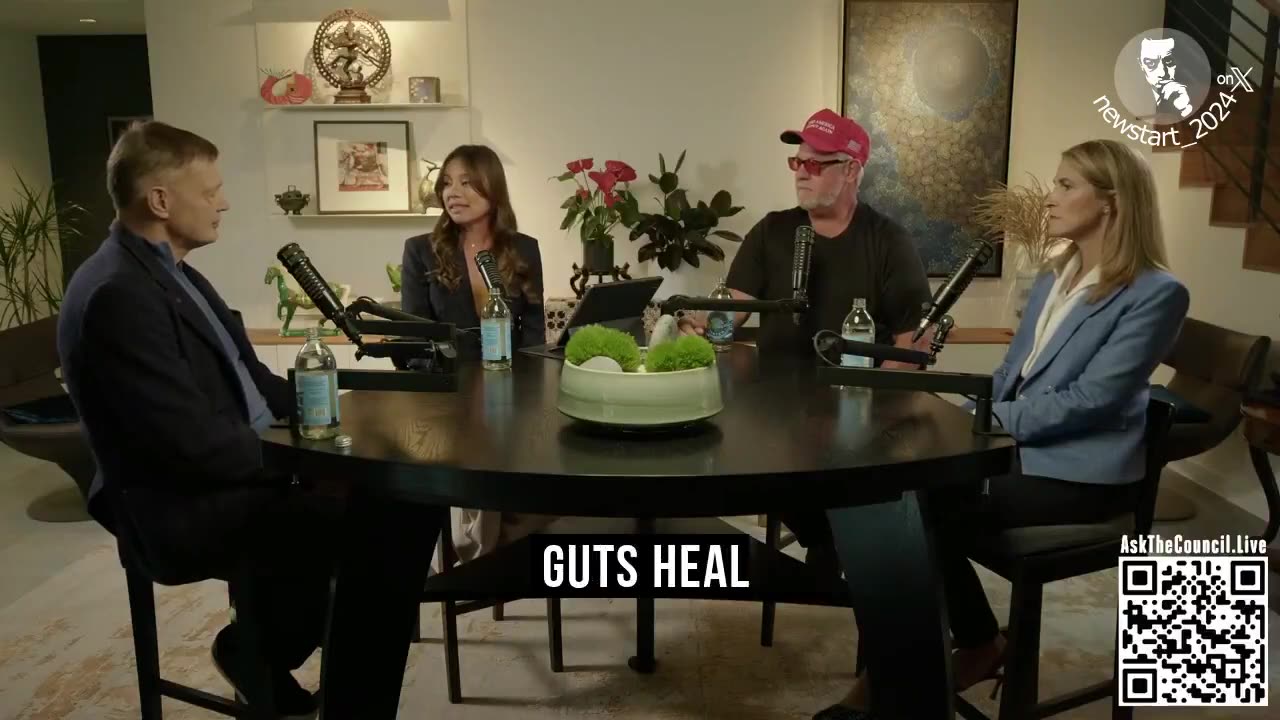
Dr. Andrew Wakefield: father reported perfectly fine until 18 month until MMR vaccine
Dr. Andrew Wakefield: "Firstly, I was an entirely mainstream, whatever that means. I was a mainstream gastroenterologist, an academic working at the Royal Free Hospital in the University of London. I had a big research team looking at inflammatory bowel disease."
"And the first lesson that I learned in medicine was in the context of children, sick children, listen to the mother, listen to the mother. And not the man in the white coat, listen to the mother because instinctively she knows her child better than anyone else in the world."
"I was presented with a clinical problem which was children, whose mothers, whose fathers reported that they had been perfectly fine, they could interact with their siblings, they had speech language, and then around the age of 18 months, they were given an MMR vaccine and then they regressed rapidly, dramatically, following a period of seizures, the lights went out in their eyes and they were ultimately diagnosed with autism."
"I said, I don't know anything about autism. You must have called the wrong number. I'm a gastroenterologist. Why are you calling me? Because, Doctor, the physicians and nurses that I speak to about my child's gastrointestinal problems say, oh, that's just part of autism. Forget about it. Put your child in a home. Get a new one and move on. And that was the state of the nation at the time."
"But the story was extremely consistent, extremely plausible, and you have to listen. And so, of course, I pulled together a team of eminent researchers, highly published researchers. top pediatric gastroenterologists, we scoped these children, we biopsied them, we looked under the microscope, they had inflammation. The parents were right."
"And we thought, well, we need to report this, which we did in an early series, as you mentioned, the Lancet paper, reporting the first observation of inflammatory bowel disease in children with autism. Because the parents were right, the medical professional, most to a man and a woman, were completely wrong on the subject of autism."
"There's no regression, children are born with it, diets don't help, all of these things, work fell by the wayside. And the new narrative is, we're just diagnosing it more. Oh yes, we're just better at diagnosing it. The best diagnostician in the world came, it was someone like Jean-Martin Charcot in Paris at the end of the 19th century."
"Not even of the last century. They understood disease, they recognized disease, they could interpret physical signs in people, they couldn't treat many of the diseases, but they were outstanding clinicians. Had autism existed, They would have described it. Gilles de la Tourette would have described it. All of these people who worked under Charcot."
"And so when they said my child regressed after a vaccine, we had to take that very, very seriously. And I did. I couldn't, you can't dissociate one from the other. You can't say you were absolutely right about this, but this is not gonna be good for my career. So would you mind? There's the door, would you leave and take your child somewhere else?"
"But that's what my colleagues, unfortunately, seem to advocate for. And the dean took me aside and said, if you continue this vaccine safety research, it will not be good for your career. Which as an obstinate young gastroenterologist, that kind of made me redouble my efforts. But he was absolutely right. It wasn't good for my career."
"And I came to America and continued the work here. And I'm glad to say that now the bowel disease in autism, the gut brain link, the role of gut bacteria is really emerging, but we are... so far behind the curve because it got branded with this anti-vax narrative. And was that correct? Absolutely."
"They took everything like my country, my credentials, my career, my... But you know what? That didn't matter. It really didn't matter because what mattered was the child, the next child with autism that I saw, that mattered. That child mattered. And that child didn't have a voice."
"And so I would... look at this and if I were feeling a little depressed, a little down in the dumps, I would say, you don't have a problem, so shut up and get on with it. This child has a problem. And that enabled me in many ways to get through it."
"And ultimately, because of the stand I'd taken on these issues, people would come to me from regulatory agencies like the CDC, the Department of Health in the UK, the FDA, or from the industry, from the vaccine manufacturers and say, you know what, we have done a terrible thing. I can no longer live with this. Here is the evidence. And so I became a repository for whistleblowers."
"And initially I would hand those off, those stories off to public interest lawyers, false claims act lawyers to be dealt with according to their merits. And then I thought, you know what? These would make amazing films. And I had a big interest in screenwriting and making movies. So I became a filmmaker."
Nicole Shanahan: "I just saw protocol seven, which is about the Merck MMR cover-up. And there's a scene in it that I had to stop the film after watching as a mother of an autistic child. It's a scene of that regression where the child's sitting under the fan."
"Many autistic children are enamored with fans and that guttural, repetitive sound the child was making in the film that my child makes all the time and the rocking back and forth. And I was devastated. And I had to turn it off. And I went and I sobbed for three hours."
"And this is what so many, it's this underground community of autism mothers. And we all whisper your research. We whisper it to each other because it's underground, because we can't say it or be heard saying it, because doing so would discredit us it would make us seem like we've lost it, that we can't handle the emotion of the difficulty of the work of being a parent of a special needs child."
"Because we're expected to be strong, to treat it, to accept it for what it is, to accept that it is unexplained and might not ever be explained and is incurable. So I just wanted to acknowledge that your name has been a name representing hope amongst many of us. And the diets and recommendations and the focus on gut health really are the first step many of us mothers do take because it's one that we can take. We can try to help our children's guts heal."
Source: https://x.com/newstart_2024/status/1867265428281864619
-
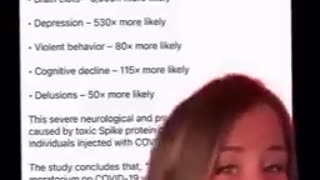 2:55
2:55
Canadian Citizens Journal
4 days agoThe biggest crime against humanity so far.
64 -
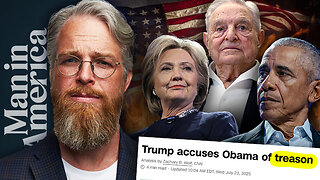 LIVE
LIVE
Man in America
7 hours agoTREASON? Obama, Hillary, and Soros in the New World Order Agenda EXPOSED w/ Mel K
5,176 watching -
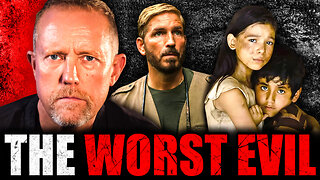 LIVE
LIVE
The Connect: With Johnny Mitchell
8 hours agoOne Man's Mission To Stop Human Trafficking: How A Billionaire Mercenary Saved Hundreds Of Children
191 watching -
 LIVE
LIVE
Tundra Tactical
3 hours ago $0.74 earned🔫 California Ammo Win, Sig Sauer P320 Controversy, Meme Review & Would You Rather! 🎉🔥
387 watching -
 16:24
16:24
Forrest Galante
1 hour ago6 Deadliest Man Eaters to Ever Exist
4.41K1 -
 10:14
10:14
MattMorseTV
6 hours ago $7.52 earnedThe EU is in HOT WATER.
58.6K35 -
 LIVE
LIVE
The Rabble Wrangler
1 day agoPUBG with The Best in the West!
35 watching -

EvilT4000
4 hours agoSaturday.....🟢For energy and focus click my Dubby link!
829 -
 LIVE
LIVE
SlingerGames
1 hour agoSpartan Night - Halo and More | Creator for @SELFMADEGGS
40 watching -
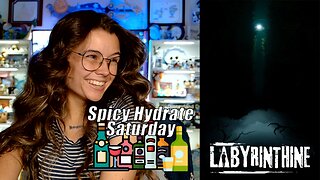
Mally_Mouse
6 hours agoSpicy Saturday!! - 10k CELEBRATION! - Let's Play: Labyrinthine
20.5K